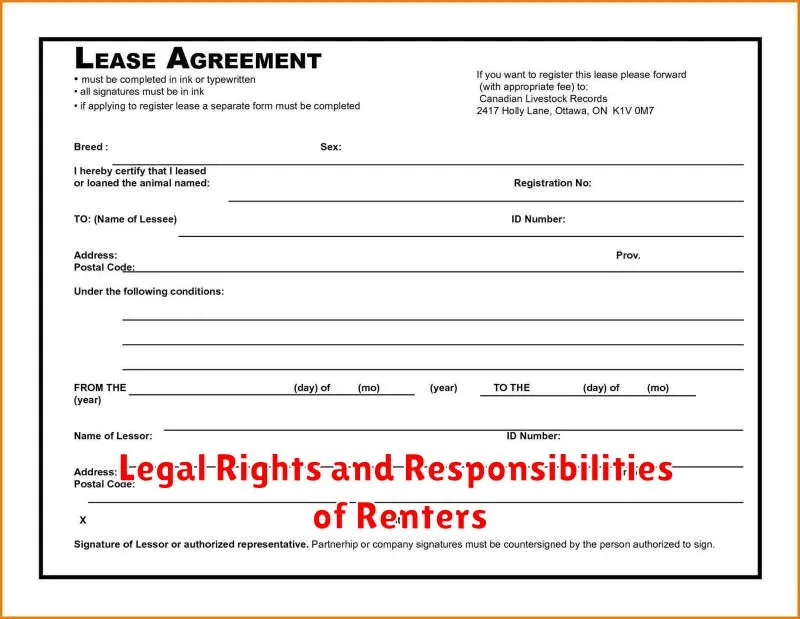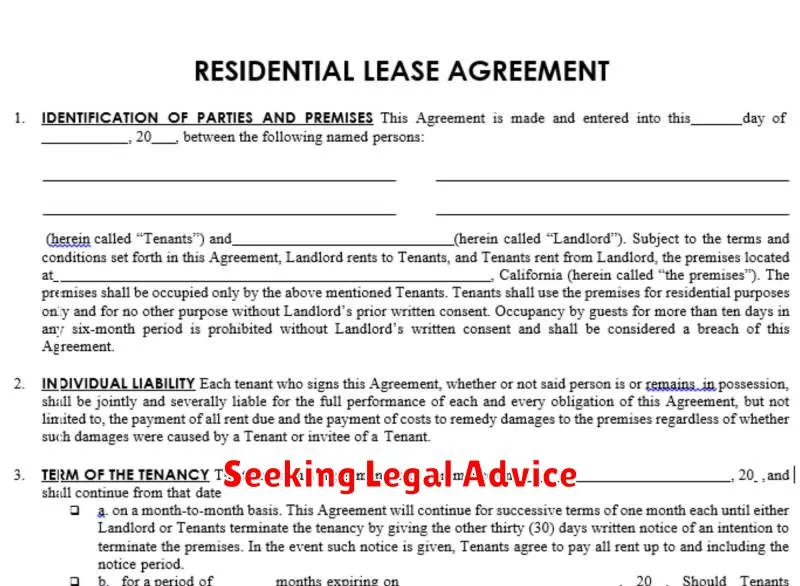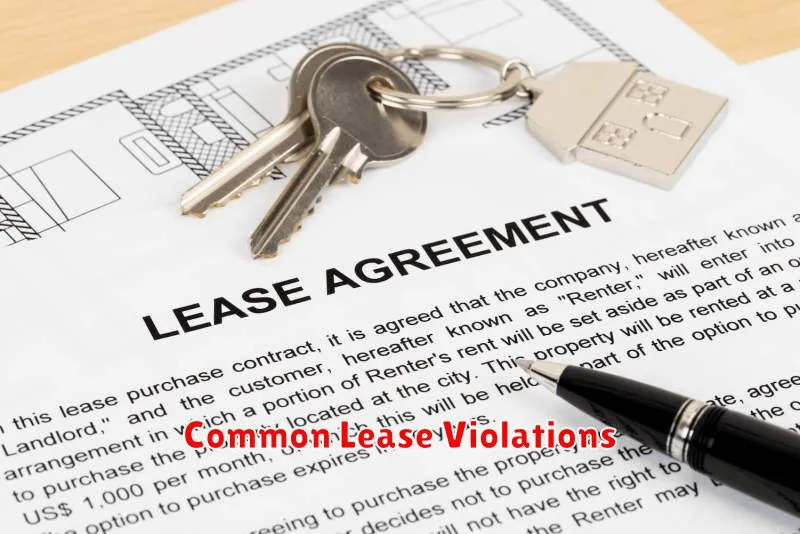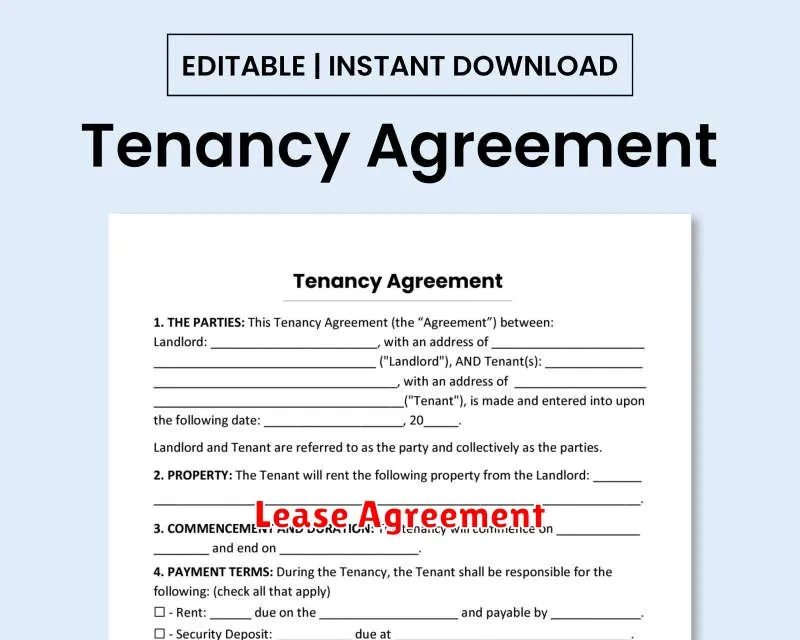Moving into a new apartment is an exciting experience, but it’s crucial to understand the terms and conditions of your apartment lease agreement. This document outlines your responsibilities as a tenant and your landlord’s obligations. From rental payments to maintenance requests, understanding your lease agreement ensures a smooth and hassle-free living experience. Whether you’re a first-time renter or a seasoned tenant, this guide will help you navigate the complexities of your lease and avoid potential issues down the road.
Key Components of a Lease Agreement
A lease agreement is a legally binding contract between a landlord and a tenant, outlining the terms and conditions of renting a property. Understanding the key components of a lease agreement is essential for both parties, ensuring clarity and minimizing potential disputes. Here are some crucial elements to pay close attention to:
1. Parties Involved: The lease should clearly identify the landlord and tenant, including their full legal names and addresses. This ensures proper identification and accountability.
2. Premises Description: The lease agreement should provide a detailed description of the property being rented, including its address, unit number, and any specific features. This clarifies the scope of the rental agreement.
3. Lease Term: The lease duration specifies the period for which the tenant agrees to rent the property. It should clearly indicate the start and end dates of the lease.
4. Rent and Payment Terms: The lease should outline the monthly rent amount, due date, and accepted payment methods. It may also specify late fees or penalties for non-payment.
5. Security Deposit: The lease should detail the amount of the security deposit, its purpose (e.g., covering damages), and the process for its return at the end of the lease.
6. Utilities: The lease agreement should clarify which utilities are included in the rent and which are the tenant’s responsibility. This can include electricity, gas, water, sewage, garbage, and internet.
7. Tenant Responsibilities: The lease will outline the tenant’s obligations, such as maintaining the property, adhering to noise restrictions, and complying with building rules.
8. Landlord Responsibilities: The lease should define the landlord’s responsibilities, such as providing a habitable property, handling repairs, and ensuring compliance with local regulations.
9. Termination Clause: The lease should include a section outlining the conditions under which either party can terminate the agreement. It may specify notice periods, grounds for termination, and consequences for early termination.
10. Governing Law and Dispute Resolution: The lease should specify the applicable law governing the agreement and the process for resolving any disputes. It may include provisions for mediation or arbitration.
By carefully reviewing and understanding these key components, tenants and landlords can ensure a clear and legally sound lease agreement that protects their interests and promotes a positive rental experience.
The Importance of Reading Your Lease Thoroughly
Before signing your lease, it’s crucial to thoroughly read and understand every part of it. This document outlines the terms of your agreement with your landlord and is a legally binding contract. A thorough understanding of your lease protects you from potential conflicts, misunderstandings, and financial burdens down the line.
Here are key reasons why reading your lease is vital:
- Avoid unexpected charges: Your lease should clearly define what is included in the rent and what additional fees you might be responsible for, such as pet rent, parking fees, or late payment penalties.
- Know your rights and responsibilities: Your lease outlines your rights as a tenant, such as the right to quiet enjoyment, the right to privacy, and the right to make minor repairs. It also clarifies your responsibilities, such as paying rent on time, maintaining the property, and adhering to specific rules.
- Understand the termination process: Your lease should outline the procedures for breaking your lease, including required notice periods and potential financial penalties.
- Prevent future disputes: By understanding the terms of your lease, you can avoid disagreements with your landlord regarding maintenance issues, guest policies, or other potentially contentious topics.
Don’t hesitate to ask questions. If there’s anything unclear or you need clarification, don’t hesitate to ask your landlord or a legal professional. It’s better to address any confusion upfront than to face potential problems later.
Understanding Lease Terms and Conditions
Your lease agreement is a legally binding contract that outlines the terms and conditions of your tenancy. It’s crucial to understand the terms to ensure you are aware of your rights and responsibilities as a tenant. A clear understanding of your lease can help prevent misunderstandings and potential conflicts with your landlord.
Lease Duration: This specifies the start and end dates of your tenancy. It determines how long you are obligated to stay in the property. Make sure to carefully review the lease duration to ensure it aligns with your plans.
Rent and Payment Schedule: This section outlines the monthly rent amount and the designated payment date. It may also include information about late fees and penalties for non-payment. Ensure you understand the payment schedule and follow it consistently.
Use of Premises: This section defines how you are permitted to use the property. It may include restrictions on the number of occupants, pets allowed, or business activities. Familiarize yourself with these limitations to avoid any violations.
Maintenance and Repairs: The lease agreement typically outlines the responsibilities for maintenance and repairs. It may specify what the landlord is responsible for, such as major repairs, and what you are responsible for, such as minor repairs. Understanding these responsibilities will help you navigate any maintenance issues.
Termination Clause: This section outlines the procedures for ending the lease early, such as breaking the lease or eviction. Familiarize yourself with the termination clause to understand the conditions and potential consequences of early termination.
Reading and understanding your lease agreement is essential for a smooth and harmonious tenancy. It ensures you are aware of your rights and responsibilities, preventing potential disputes with your landlord.
Rent Amount and Payment Schedule
The rent amount is the most important part of your lease agreement. It outlines how much you’ll be paying each month for your apartment. Make sure you understand the exact amount you’ll be paying, including any additional fees like parking or pet rent. The lease agreement will also specify the payment schedule, including the due date and the method of payment (check, money order, online, etc.).
It’s crucial to understand the consequences of late payment. The lease will likely detail a late fee for payments received after the due date. In some cases, late payments can even lead to eviction. Be proactive and make sure you pay rent on time every month to avoid any issues.
Lease Duration and Renewal Options
The lease duration, often referred to as the lease term, is the length of time you’re legally obligated to live in the apartment. It’s typically a set period, usually 12 months, but can be shorter or longer depending on the landlord’s policy. You’ll find this information clearly stated in your lease agreement.
Before your lease expires, you’ll be presented with the option to renew. This means you can extend your lease for another term, often the same length as the initial lease. However, the rent may increase, and there could be new lease terms you need to agree to.
You’ll receive a notice from your landlord about the renewal process, usually within a specific timeframe before your lease ends. Make sure you review the proposed terms carefully, including any rent increases or changes to the lease agreement, before signing.
If you don’t want to renew your lease, you must notify your landlord in writing within the timeframe specified in the agreement. Failing to do so could result in automatic renewal of your lease.
It’s important to understand the lease duration and renewal options in your apartment lease agreement. This will help you plan your housing situation and avoid any unexpected surprises or penalties.
Security Deposit Information
A security deposit is a sum of money you pay to your landlord at the beginning of your tenancy. It’s held as a guarantee against any damage you might cause to the property during your lease. This deposit is typically returned to you at the end of your lease, as long as the apartment is in good condition and you haven’t broken any terms of the lease.
The amount of the security deposit is usually determined by your landlord and can vary depending on the apartment and location. It’s important to understand the following:
- The amount of the security deposit: This amount should be clearly stated in your lease agreement.
- How the security deposit is held: Your landlord must hold the security deposit in a separate account that is dedicated solely to security deposits.
- The conditions for receiving your security deposit back: Your lease should outline the specific conditions under which you will receive your security deposit back in full, such as leaving the apartment in good condition, paying rent on time, and adhering to the lease agreement.
- How to claim your security deposit back: Understand the process for requesting your security deposit back, including the timeline for receiving it.
It’s crucial to read your lease agreement carefully and understand the terms related to the security deposit. If you have any questions, ask your landlord for clarification. Keeping track of your security deposit and understanding your rights regarding it can help ensure you receive it back in full at the end of your tenancy.
Maintenance Responsibilities
The maintenance responsibilities section of your lease agreement outlines who is responsible for what repairs and upkeep within your apartment. This is crucial for ensuring a smooth living experience and avoiding conflicts with your landlord.
Typically, the landlord is responsible for major repairs such as:
- Roof leaks
- Plumbing issues
- Electrical problems
- Structural damage
While you, as the tenant, are usually responsible for:
- Minor repairs like fixing a leaky faucet or replacing a lightbulb
- Keeping your apartment clean and free from damage
- Reporting any maintenance issues promptly to your landlord.
It’s important to carefully read your lease agreement and understand your specific responsibilities. If you’re unsure about something, don’t hesitate to ask your landlord for clarification.
By understanding your maintenance responsibilities, you can ensure a pleasant living environment and prevent any unnecessary conflicts with your landlord.
Rules and Regulations
The “Rules and Regulations” section of your lease agreement outlines the specific dos and don’ts of living in your apartment building. These rules are in place to ensure a safe, comfortable, and enjoyable living environment for everyone. They are designed to address issues such as noise levels, pet policies, parking restrictions, and general conduct within the property.
Carefully read through this section and make sure you understand all the regulations. If you have any questions, don’t hesitate to ask your landlord or property manager for clarification. It’s crucial to be aware of these rules to avoid potential conflicts and ensure you are in compliance with your lease agreement.
Here are some common examples of rules and regulations you might find in your lease:
- Noise restrictions: These rules typically specify quiet hours, acceptable noise levels, and activities that may be deemed disruptive.
- Pet policies: If pets are allowed, the lease will outline permitted pet breeds, sizes, and any associated fees or restrictions.
- Parking regulations: This section will address parking spaces, visitor parking, and any restrictions on vehicle types or modifications.
- Guest policies: The lease may outline guidelines for guests, including the frequency and duration of visits.
- Maintenance and repairs: The lease will define who is responsible for repairs, how to report maintenance issues, and the process for addressing urgent situations.
- Smoking policies: The lease will clarify whether smoking is permitted on the property and, if so, where it is allowed.
Understanding and following these rules is essential for maintaining a harmonious living experience within your building. By adhering to the lease agreement’s regulations, you can contribute to a pleasant and respectful community environment.
Guest Policies
Guest policies are an important part of your lease agreement and outline the rules regarding visitors to your apartment. These policies are typically designed to protect the rights and safety of all residents, including those living in the building and their guests. Familiarize yourself with the following common aspects of guest policies:
Guest Registration: Many landlords require guests to be registered, providing basic information like their name and contact details. This helps the landlord keep track of who is in the building and ensure the safety of all residents.
Guest Duration: Lease agreements usually specify the maximum duration guests can stay at your apartment. This period can range from a few days to a week or longer. Exceeding this time limit may result in fines or even eviction.
Guest Behavior: The lease agreement may outline acceptable guest behavior, such as prohibiting disruptive noise, excessive guests, or illegal activities.
Guest Parking: If your apartment complex has limited parking spaces, your lease agreement may stipulate rules regarding guest parking, including designated areas and time restrictions.
Guest Access: Some leases might outline procedures for guest access, such as issuing temporary key cards or requiring them to be accompanied by you.
Understanding and adhering to guest policies is essential for maintaining a harmonious living environment and avoiding conflicts with your landlord.
Pet Policies
Apartment leases often contain a section dedicated to pet policies, outlining the rules and regulations regarding pets in the rental property. This section is crucial for pet owners as it dictates whether pets are allowed, the types of pets permitted, any breed restrictions, and potential fees associated with pet ownership. Carefully review this section to ensure compliance and avoid any future conflicts with your landlord.
Pet restrictions may vary significantly between properties. Some landlords may welcome pets with open arms, while others may have strict limitations or outright bans. Certain breeds might be deemed “dangerous” and prohibited, and there could be restrictions on the number or size of pets allowed. Additionally, pet policies might include requirements for pet registration, vaccination records, and liability insurance.
It’s important to understand that violating pet policies can result in various consequences, including fines, eviction, and legal action. Therefore, thoroughly read and comprehend the pet policy section of your lease agreement before moving in with a pet. If you have any questions or concerns, don’t hesitate to clarify with your landlord or property manager.
By understanding and adhering to the pet policies outlined in your lease, you can ensure a harmonious relationship with your landlord and enjoy a pet-friendly living environment. Remember, responsible pet ownership includes respecting the rules and regulations established by your landlord.
Parking Information
The parking section of your lease agreement outlines the terms and conditions for parking at your apartment complex. This includes details like:
- Assigned parking spaces: Whether or not you have an assigned parking space and its location.
- Parking fees: Any monthly or annual parking fees you need to pay.
- Guest parking: Whether there are designated guest parking spaces and their location.
- Parking permits: If you need to obtain a parking permit and the process for doing so.
- Parking rules and regulations: Restrictions on parking types, such as no overnight parking or restrictions on the number of vehicles allowed.
- Towing policy: Details about vehicle towing for violations of parking rules.
It’s essential to carefully read and understand the parking section of your lease to avoid any fines or towing issues.
Termination Clause
The termination clause in your apartment lease agreement outlines the conditions under which either you or your landlord can end the lease before its natural expiration. Understanding this clause is crucial because it details the process for breaking the lease and any potential financial consequences.
Here are some key aspects of a termination clause:
- Notice period: This specifies how much advance notice is required to terminate the lease. The notice period may vary depending on the reason for termination.
- Grounds for termination: This outlines the permissible reasons for ending the lease, such as a breach of contract, failure to pay rent, or a significant event like a job transfer.
- Financial penalties: The termination clause may detail potential financial penalties, such as early termination fees, unpaid rent, or damages to the property.
It’s crucial to carefully read and understand your termination clause to avoid any unexpected fees or legal complications. If you have questions about the termination clause, don’t hesitate to ask your landlord or consult with a legal professional.
Legal Rights and Responsibilities of Renters

When you sign a lease, you’re entering into a legally binding agreement with your landlord. This agreement outlines the rights and responsibilities of both parties, and it’s important to understand these before you sign.
As a tenant, you have the right to live in a safe and habitable dwelling. This means your landlord is responsible for maintaining the property, including making necessary repairs, providing utilities like water and electricity, and ensuring the property is free from health and safety hazards. You also have the right to privacy, which means your landlord can’t enter your apartment without your consent except in certain circumstances, such as an emergency or to make necessary repairs.
On the other hand, you also have responsibilities as a tenant. You are responsible for paying rent on time, keeping the premises clean and sanitary, and not damaging the property. You also need to be aware of the specific rules outlined in your lease, such as noise restrictions and pet policies.
It’s important to familiarize yourself with your state’s landlord-tenant laws, as they provide additional protections for tenants and can help resolve disputes with your landlord. If you are unclear about any aspect of your lease or your rights, consult with a legal professional.
Seeking Legal Advice

If you have questions or concerns about your lease agreement, it’s always a good idea to seek legal advice from a qualified attorney. An attorney can help you understand your rights and obligations under the lease, and can advise you on how to best protect your interests. Here are some situations where seeking legal advice might be beneficial:
- You are unsure about the meaning of a specific clause in the lease.
- You believe the landlord is violating the terms of the lease.
- You are considering breaking your lease early.
- You are facing eviction.
- You have a dispute with your landlord about repairs or other issues.
An attorney can help you navigate the complexities of your lease agreement and advocate for your rights. They can also help you understand the potential consequences of your actions and make informed decisions.
Common Lease Violations

Your apartment lease agreement is a legally binding contract that outlines the terms and conditions of your tenancy. It’s essential to understand your lease agreement thoroughly, as violating its terms can result in penalties, including rent increases, eviction, or legal action. Here are some common lease violations that you should be aware of:
Unpaid Rent
Failing to pay rent on time is a serious violation of your lease agreement. Landlords have the right to pursue legal action to collect unpaid rent, which can include eviction proceedings.
Unauthorized Pets
Many lease agreements have specific rules regarding pets. If your lease prohibits pets or limits the number or types of pets allowed, bringing an unauthorized pet into your apartment is a violation.
Noise Violations
Your lease agreement may include clauses regarding noise levels and acceptable hours of operation. Excessive noise, loud music, or disruptive behavior can constitute a violation.
Subletting Without Permission
Subletting your apartment without your landlord’s permission is a common violation. Most leases require you to obtain written consent before subletting, and failure to do so can result in penalties.
Illegal Activities
Engaging in illegal activities, such as drug use or dealing, is a serious violation of your lease agreement and can lead to immediate eviction.
Damaging the Property
You are responsible for maintaining the condition of your apartment. Causing significant damage to the property, beyond normal wear and tear, can be a violation of your lease agreement.
It’s crucial to read and understand your lease agreement carefully. If you have any questions or concerns, reach out to your landlord or property manager for clarification. By adhering to the terms of your lease agreement, you can ensure a smooth and positive tenancy experience.

